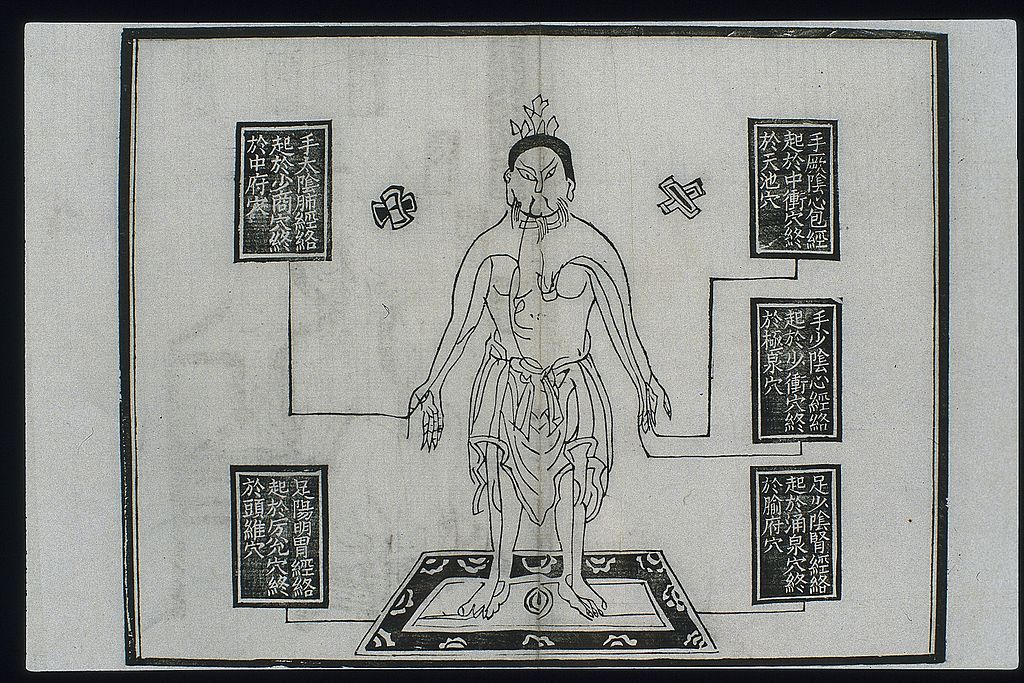Results for: non-specific effects

Is gluten the new Candida?
Celiac disease and non-celiac gluten sensitivity are very different things. The former has a large, visible, well-understood scientific foundation that is lacking in the latter.

What Is Traditional Chinese Medicine?
Traditional Chinese Medicine is not actual medicine, and should not be treated as such. It has more in common with Galen's theory of the four humors than anything a doctor would recognize today.

Acupuncture, the Navy, and Faulty Thinking
A Navy neurologist, Capt. Elwood Hopkins, has posted a 3-part article on “The Power of Acupuncture” on Navy Medicine Live, the official blog of Navy and Marine Corps Health Care. It can serve as a useful lesson in how not to think about medicine. It is a prime example of how an intelligent, educated doctor can be fooled and can fool himself...
Strains, sprains and pains
What do you think would happen if you gave a bunch of “complementary and alternative medicine” practitioners access to a big pot of money — say, up to $10,000 per patient — and let them treat patients virtually without restriction, hampered only by a fee schedule. No utilization review, no refusal based on a treatment being “experimental” — none of the usual...
Hypothyroidism: The facts, the controversies, and the pseudoscience
As glands go, we don’t give the butterfly-shaped thyroid that straddles our trachea too much thought — until it stops working properly. The thyroid is a bit like your home’s thermostat: turn it high, and you’re hyperthyroid: heat intolerant, a high heart rate, and maybe some diarrhea. Turn it down, and you’re hypothyroid: cold, tired, constipated, and possibly even depressed. Both conditions...
Vitamin B12 – The Energy Panacea?
Having spent many hours working in close proximity to a wall of vitamins, I’ve answered a lot of vitamin questions, and given a lot of recommendations. Before I can make a recommendation, I need to ask some questions of my own. My first is almost always, “Why do you want to take a vitamin?” The most common response I’m given is “insurance”...

Reiki
Reiki (pronounced raykey) is a form of “energy healing,” essentially the Asian version of faith healing or laying on of hands. Practitioners believe they are transferring life energy to the patient, increasing their well-being. The practice is popular among nurses, and in fact is practiced by nurses at my own institution (Yale). From reiki.org, we get this description: Reiki is a Japanese...
Acupuncture and Acoustic Waves
Here is yet another study claiming to show “how acupuncture works” when in fact it does nothing of the kind. It does, however, reveal the bias of the researchers – it is, in fact, surprising that it was published in a peer-reviewed journal. Unfortunately, the mainstream media is dutifully reporting the biased claims of the researchers without any independent verification or analysis....
An open letter to NIH Director Francis Collins regarding his appearance at the Society for Integrative Oncology
Note from the editor: Since today is a holiday in the U.S., I had planned on taking the day off. Then I saw the subject of today’s post and had to respond. Also, please remember that, as always, the usual disclaimers apply. This letter represents my opinion, and my opinion alone. It does not represent the view or opinion of my university...
The Top Ten Pet Supplements: Do They Work?
An Embarrassment of Riches? Much has been written here about the dietary supplement business, a multibillion dollar industry with powerful political connections, and about the woeful inadequacy of regulation which allows widespread marketing of supplements without a solid basis in science or scientific evidence. The veterinary supplement market is a pittance compared to the human market, but still a billion-dollar pittance that...

